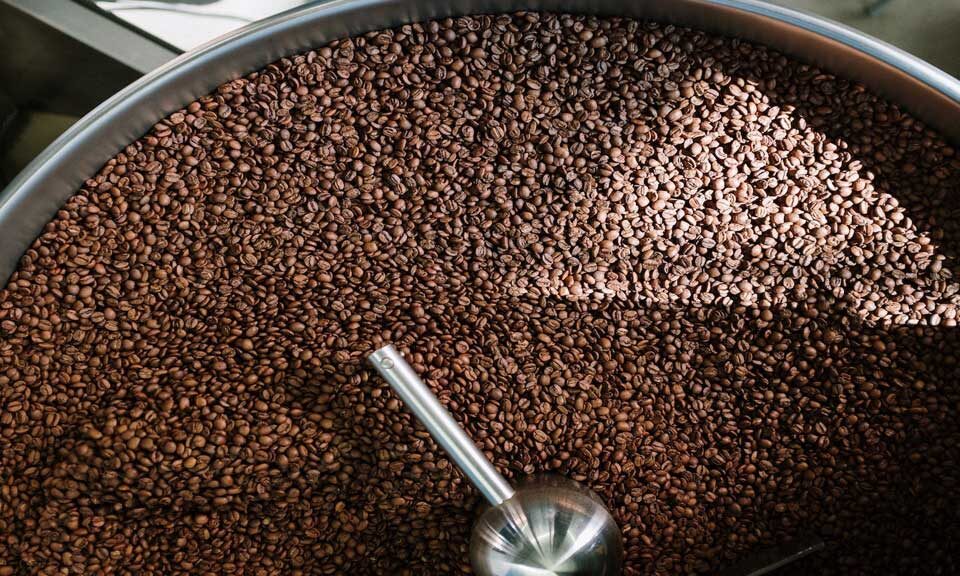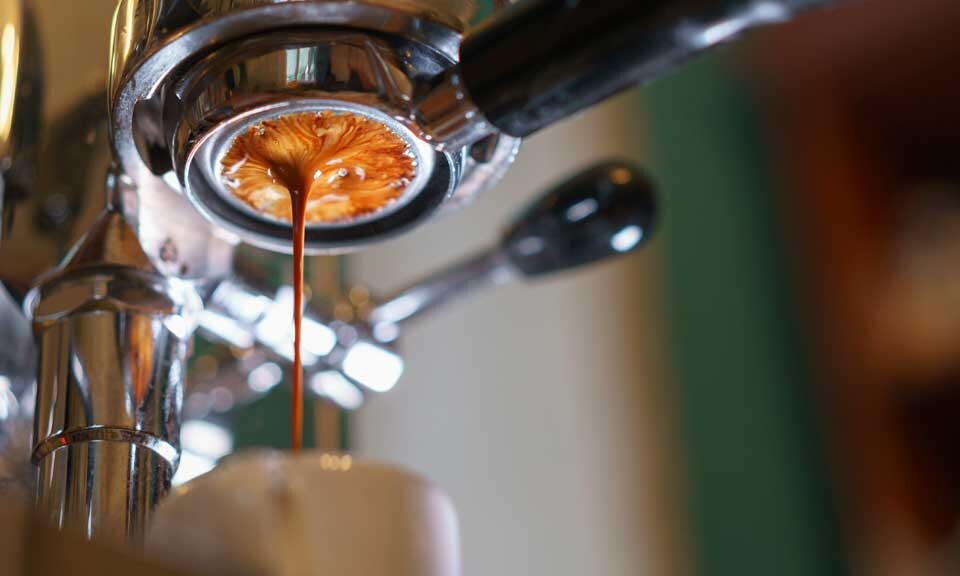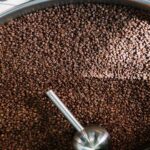
Coffee Roasting Course in Italy: Master the Art of Espresso Coffee Roasting
17 December 2024What’s the meaning of Home Barista?
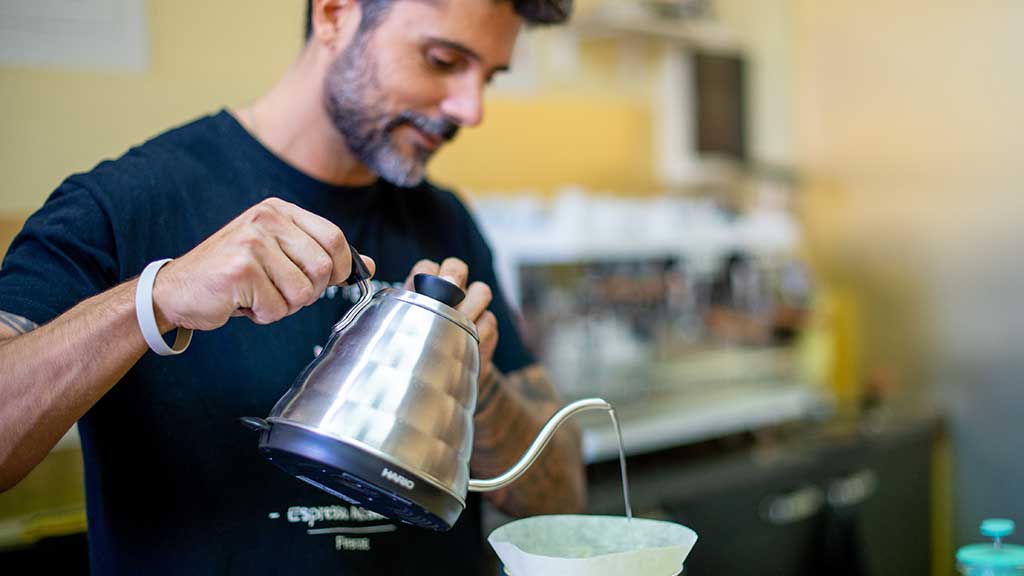
The term “home barista” has gained significant popularity in recent years, especially with the rise of specialty coffee and third-wave coffee culture.

At Espresso Academy, we see home baristas as a passionate community of coffee enthusiasts who bring the café experience into their own homes, using professional tools and techniques to achieve outstanding results. But what does it really mean to be a home barista? How is it different from being a professional barista? Let’s dive into the meaning, origins, and growing impact of this trend in the coffee world.
What Is the Meaning of Home Barista?
A home barista is someone who brews high-quality coffee at home, using equipment and techniques typically associated with professional coffee shops. Unlike a casual coffee drinker who simply makes coffee using a basic machine, a home barista is passionate about exploring different brewing methods, grinding fresh beans, and achieving the perfect extraction.
In essence, the term refers to someone who takes their coffee seriously at home, treating the process with the same care and attention as a professional barista would.
What Does It Mean to Be a Barista?
Traditionally, a barista is a professional who prepares and serves coffee in a coffee shop. The word originates from Italian, where it means “bartender”, referring to someone who serves both coffee and alcoholic beverages. Over time, the term has evolved to specifically describe someone skilled in preparing espresso-based drinks, such as cappuccinos, lattes, and macchiatos.
However, the rise of the home barista has blurred the lines between professional and amateur coffee enthusiasts. With access to high-quality coffee machines and online resources, coffee lovers can now achieve café-level results from the comfort of their own kitchens.
The Rise of the Home Barista Phenomenon
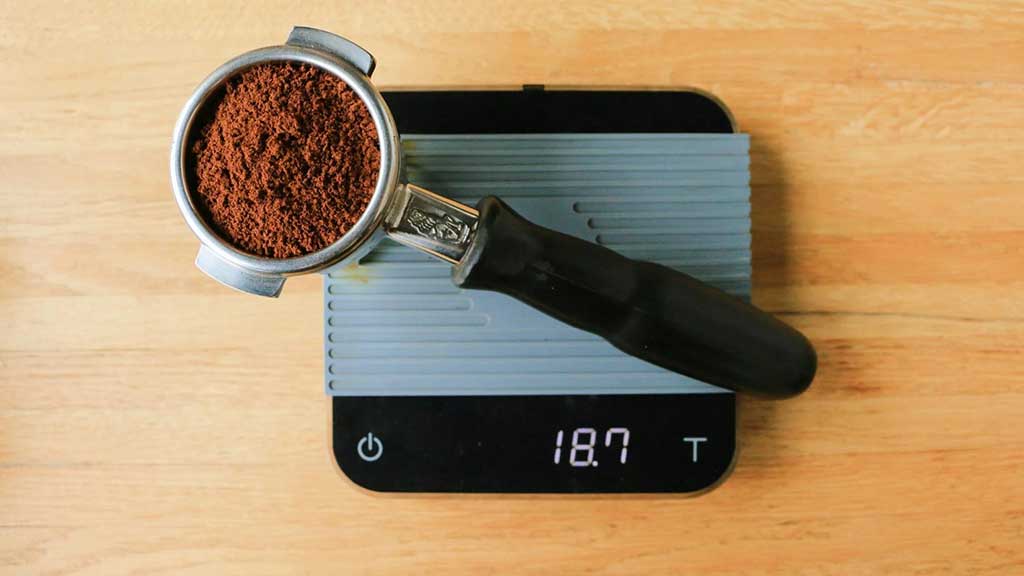
The concept of the home barista emerged alongside the growth of the specialty coffee movement, which emphasizes high-quality beans, ethical sourcing, and unique flavor profiles. As consumers became more interested in the story behind their coffee, they also became more curious about how to brew it perfectly at home.
The rise of social media platforms like Instagram and YouTube has further fueled this trend. At Espresso Academy, we actively engage with the home barista community through our social media channels and online resources, sharing tips, tutorials, and inspiration to help coffee enthusiasts improve their brewing skills. Home baristas are now sharing their brewing setups, latte art, and coffee experiments online, creating a global community of coffee enthusiasts.
The Influence of Specialty Coffee
Specialty coffee has played a crucial role in shaping the home barista culture. Unlike traditional commercial coffee, specialty coffee focuses on quality over quantity.
This shift has encouraged more people to explore different brewing methods, such as:
- Pour-over (like the V60)
- French press
- AeroPress
- Espresso machines
- Cold brew
Each method requires specific skills and knowledge, which home baristas are eager to learn.
How the Home Barista Trend Is Changing the Market
The rise of home baristas has had a significant impact on the coffee industry. In response to this growing demand, companies are now producing innovative coffee machines and tools designed specifically for home use. These machines offer professional-level performance but are more compact and user-friendly for home environments.
Some notable trends in the market include:
- High-end home espresso machines with precise temperature control and pressure profiling
- Manual brewing tools like the Chemex, Kalita Wave, and siphon brewers
- Grinders with adjustable settings for perfect grind size
- Subscription services that deliver fresh specialty coffee beans to your doorstep
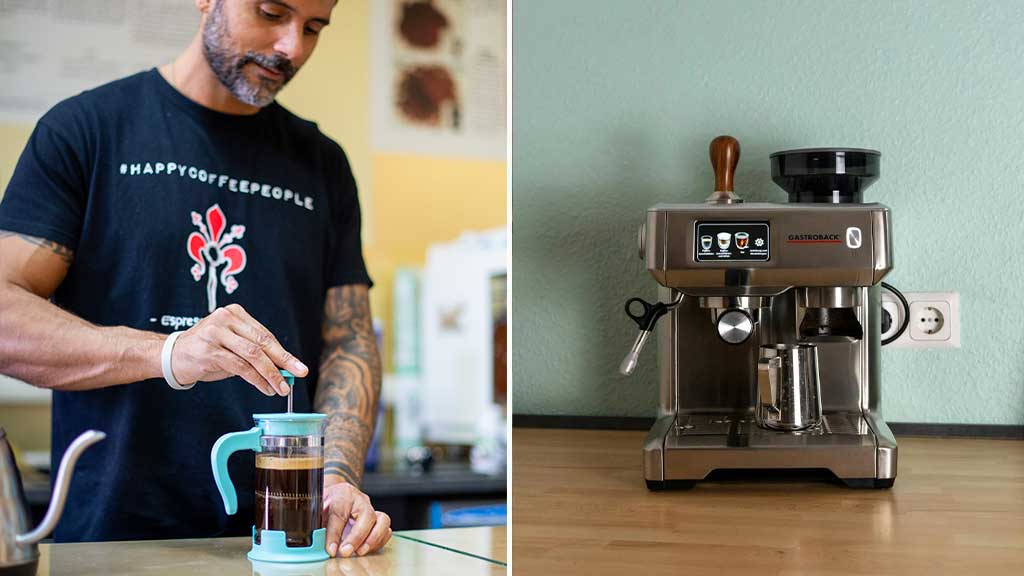
Essential Tools for Home Baristas
To achieve barista-level coffee at home, investing in the right coffee tools is essential. Espresso Academy courses cover the use of these tools, from precision scales to advanced tampers, ensuring home baristas can achieve professional results. Here are some key tools that every home barista should consider:
- Coffee Grinders: A good grinder is crucial for achieving the correct grind size for different brewing methods. Look for a burr grinder with adjustable settings to ensure consistency.
- Scales: Precision is key in coffee brewing. Using a digital scale helps home baristas measure their coffee and water ratios accurately.
- Tamper: For espresso lovers, a tamper is essential for pressing the coffee grounds evenly into the portafilter. Dynamometric tampers ensure consistent pressure every time.
- WDT Tools (Weiss Distribution Technique): These tools help distribute coffee grounds evenly in the portafilter, reducing channeling and ensuring an even extraction.
- Levelers: A leveler helps create a flat and even coffee bed in the portafilter, leading to more consistent extractions.
- Thermometers: Maintaining the right water temperature is crucial for optimal extraction. Milk thermometers are also useful for steaming milk to the correct temperature.
- Brewing Kettles: For pour-over methods, a gooseneck kettle allows for precise control over the water flow.
- Filters and Cleaning Tools: Keeping your equipment clean is essential for maintaining coffee quality. Cleaning brushes and backflushing products help prolong the life of your equipment.
These tools, when combined with proper brewing techniques, can significantly improve the quality of coffee brewed at home.
The Role of Online Stores and Social Media
The internet has played a massive role in spreading the home barista trend. Online stores now offer a wide selection of specialty coffee beans, brewing equipment, and accessories. These stores often provide detailed guides on how to use the equipment, helping home baristas improve their skills.
Meanwhile, social media has become a platform for home baristas to showcase their creations. From latte art competitions to brewing tips, platforms like Instagram, TikTok, and YouTube are filled with content created by and for home baristas. This online community has become a source of inspiration and education for coffee lovers worldwide.
Home Barista vs. Professional Barista: What’s the Difference?
While both home baristas and professional baristas share a passion for coffee, there are some key differences:
| Home Barista | Professional Barista |
| Focuses on quality and experimentation at home | Works in a high-pressure environment serving customers |
| Less concerned with speed or efficiency | Must prioritize speed and customer service |
| Can explore different brewing methods | Often sticks to espresso-based drinks |
| Invests in personal brewing equipment | Uses commercial-grade machines |
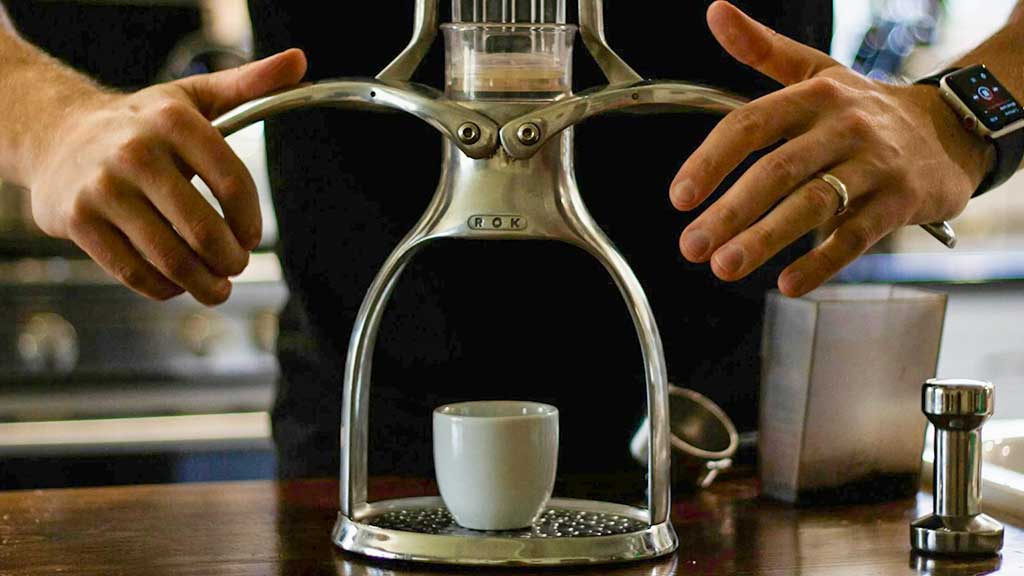
Interestingly, the learning path for a home barista can be more diverse and creative. Without the constraints of a busy café, home baristas can take their time to experiment with different beans, roasts, and brewing techniques.
How to Be a Home Barista
Becoming a home barista requires curiosity and a willingness to learn. Here are some tips to get started:
- Invest in Good Equipment – Start with a quality grinder and a manual brewing tool like a French press or pour-over kit.
- Use Fresh Beans – Always choose fresh specialty coffee beans for the best results.
- Learn About Brewing Techniques – Explore different methods and find what works best for your taste.
- Follow Online Communities – Join home barista groups on social media to get tips and inspiration.
- Take a Course – Consider enrolling in a home barista course at Espresso Academy to improve your skills and knowledge. Our courses, both online and in-person, provide comprehensive training to help you master brewing techniques and elevate your coffee experience at home.
Why Home Barista Training Can Be More Interesting Than Traditional Barista Training
Home barista training often focuses more on the coffee itself rather than the speed and efficiency required in a café setting. This allows home baristas to:
- Discover unique origins and flavor profiles
- Experiment with different brewing methods
- Learn about coffee sustainability and sourcing
- Perfect latte art without time pressure
This more relaxed and explorative approach makes home barista training a fun and rewarding experience, ideal for anyone passionate about coffee.
Home Barista Courses at Espresso Academy
If you’re interested in taking your home barista skills to the next level, Espresso Academy offers dedicated Home Barista Courses both in-person at our Florence campus and online through video courses.
Our courses cover everything from understanding coffee origins to mastering brewing techniques and latte art. You will learn how to choose the best equipment, experiment with different coffee beans, and elevate your home coffee experience to a professional level.
By enrolling in one of our courses, you’ll join a community of passionate coffee lovers and gain access to expert trainers who can guide you through your journey as a home barista. Visit our website to explore all the courses and resources we offer to help you become a true coffee expert.
Final Thoughts: The Meaning of Home Barista in Today’s Coffee Culture
The term “home barista” has evolved to represent a new wave of coffee enthusiasts who are pushing the boundaries of what can be achieved at home. Thanks to the growth of specialty coffee, innovative equipment, and online communities, becoming a home barista is more accessible and exciting than ever.
Whether you’re brewing a classic espresso or experimenting with pour-over methods, being a home barista is all about celebrating coffee in a personal and meaningful way.


